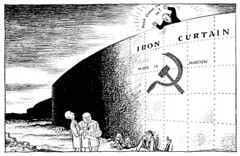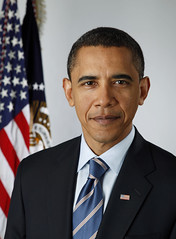AMSCO AP US History Chapter 15 Flashcards
AMSCO United States History 2015 Edition, Chapter 15 Reconstruction, 1863-1877
| 5441834471 | Civil Rights Act of 1866 | The act declared that all persons born in the United States were now citizens, without regard to race, color, or previous condition. (p. 295) |  | 0 |
| 5441834472 | Fourteenth Amendment | Constitutional amendment adopted after the Civil War that states, "no state shall make or enforce any law which shall abridge the privileges or immunities of citizens of the United States; nor shall any state deprive any person of life, liberty, or property, without due process of law; nor deny to any person within its jurisdiction the equal protection of the laws." (p. 295) |  | 1 |
| 5441834473 | equal protection of the laws | Part of the 14th amendment emphasizing that the laws must provide equivalent "protection" to all people. |  | 2 |
| 5441834474 | due process of law | Denies the government the right, without due process, to deprive people of life, liberty and property |  | 3 |
| 5441834475 | Fifteenth Amendment | Constitutional amendment that says the right of citizens of the United States to vote shall not be denied or abridged by the United States or by any State on account of race, color, or previous condition of servitude. (p. 297) |  | 4 |
| 5441834476 | Civil Rights Act of 1875 | Last major piece of Reconstruction legislation this law prohibited racial discriminations in all public accommodations, transportation, The law was poorly enforced. (p. 297) | 5 | |
| 5441834477 | Jay Gould | Wall Street financier who obtained the help of President Grant's brother in law to corner the gold market. Treasury broke the scheme, but not he had already made a huge profit. (p. 300) |  | 6 |
| 5441834478 | Credit Mobilier | Insiders gave stock to members of Congress to avoid investigation of government subsidies for building the transcontinental railroad. (p. 300) | 7 | |
| 5441834479 | William (Boss) Tweed; Tweed Ring | New York politician and cronies, respectively, who, through fraudulent billing and embezzlement, defrauded the city of New York out of between 25 and 200 million dollars. |  | 8 |
| 5441834480 | spoilsmen | Political manipulators such as Senator Roscoe Conklin of NY and James Blaine of Maine who used patronage | 9 | |
| 5441834481 | patronage | One of the key inducements used by party machines. A patronage job, promotion, or contract is one that is given for political reasons rather than for merit or competence alone. |  | 10 |
| 5441834482 | Thomas Nast | Political cartoonist who's work exposed the abuses of the Tweed ring, criticized the South's attempts to impede Reconstruction, and lampooned labor unions. Created the animal symbols of the Democratic and republican parties. |  | 11 |
| 5441834483 | Liberal Republicans | This group advocated civil service reform, an end of railroad subsidies, withdrawal of troops from the South, reduced tariffs, and free trade. | 12 | |
| 5441834484 | Horace Greeley | Editor of the New York Tribune; presidential nominee for the Liberal Republicans and the Democrats for the 1872 election; lost to Grant and died a few weeks after his defeat. |  | 13 |
| 5441834485 | Panic of 1873 | Economic panic caused by overexpansion and overspeculation. President Grant vetoed a bill calling for release of additional greenbacks. (p. 302) | 14 | |
| 5441834486 | greenbacks | Name given to paper money issued by the government during the Civil War, so called because the back side was printed with green ink. They were not redeemable for gold, but $300 million were issued anyway. Farmers hit by the depression wanted to inflate the notes to cover losses, but Grant vetoed an inflation bill and greenbacks were added to permanent circulation. In 1879 the federal government finally made greenbacks redeemable for gold. |  | 15 |
| 5441834487 | redeemers | Largely former slave owners who were the bitterest opponents of the Republican program in the South. Staged a major counterrevolution to "redeem" the south by taking back southern state governments. Their foundation rested on states rights, reduced taxes, reduced social programs, and white supremacy. (p. 302) | 16 | |
| 5441834488 | Rutherford B. Hayes | Nineteenth president of the United States. He was famous for being part of the Hayes-Tilden election in which electoral votes were contested in 4 states, most corrupt election in US history. |  | 17 |
| 5441834489 | Samuel J. Tilden | Hayes' opponent in the 1876 presidential race, he was the Democratic nominee who had gained fame for putting Boss Tweed behind bars. He collected 184 of the necessary 185 electoral votes. |  | 18 |
| 5441834490 | Compromise of 1877 | Informal deal that settled the 1876 presidential election contest between Rutherford Hayes (Republican) and Samuel Tilden (Democrat). Hayes was awarded the presidency in exchange for the permanent removal of federal troops from the South and support of the Southern transcontinental railroad. (p. 303) | 19 | |
| 5441834491 | presidential reconstruction | In 1864, Republican Abraham Lincoln chose Andrew Johnson, a Democratic senator from Tennessee, as his Vice Presidential candidate. | 20 | |
| 5441834492 | Proclamation of Amnesty and Reconstruction (1863) | Lincoln set up a process for political Reconstruction, as in reconstructing the state governments in the South so that Unionists were in charge rather than secessionists; full presidential pardons for most southerners who either took an oath of allegiance to the Union and the Constitution, a state government could be reestablished and accepted as legitimate by the US president as soon as at least 10 percent of the voters in the state took the loyalty oath, each southern state needed to rewrite Constitution to eliminate existence of slavery | 21 | |
| 5441834493 | Wade-Davis Bill | In 1864 harsh Congressional Reconstruction bill that provided the president would appoint provisional governments for conquered states until a majority of voters took an oath of loyalty to the Union. It required the abolition of slavery by new state constitutions, only non-Confederates could vote for a new state constitution. Lincoln killed the bill with a pocket veto. (p. 292) | 22 | |
| 5441834494 | Andrew Johnson | The seventeenth U.S. President, (1865-1869). A Southerner from Tennessee, V.P. when Lincoln was killed he became president. He opposed radical Republicans who passed Reconstruction Acts over his veto. The first U.S. president to be impeached, he survived the Senate removal by only one vote. (p. 297) |  | 23 |
| 5441834495 | Freedmen's Bureau | In 1865 an organization created at end of Civil War that aided southerns (mainly former slaves) with education, finding food, shelter and employment. (p. 292) | 24 | |
| 5441834496 | Black Codes | Restricted the rights and movements of newly freed African Americans. 1) prohibited blacks from either renting land or borrowing money to buy land, 2) placed freemen into a form of semi bondage by forcing them, as "vagrants" and "apprentices" to sign work contracts, 3) prohibited blacks from testifying against whites in court. (p. 294) |  | 25 |
| 5441834497 | Congressional Reconstruction | 26 | ||
| 5441834498 | Radical Republicans | A small group of people in 1865 who supported black suffrage. They were led by Senator Charles Sumner and Congressman Thaddeus Stevens. They supported the abolition of slavery and a demanding reconstruction policy during the war and after. | 27 | |
| 5441834499 | Charles Sumner | Leader of the antislavery forces in Massachusetts and a leader of the Radical Republicans in the United States Senate during the American Civil War working to destroy the Confederacy, free all the slaves, and keep on good terms with Europe. |  | 28 |
| 5441834500 | Thaddeus Stephens | PA Congressman who hoped to revolutionize southern society through an extended period of military rule in which blacks would be free to exercise their civil rights, receive education, and receive lands from planter class (Radical Republican) | 29 | |
| 5441834501 | Benjamin Wade | Radical republican who endorsed woman's suffrage, rights for labor unions, and civil rights for northern blacks |  | 30 |
| 5441834502 | Reconstruction Acts (1867) | Four statutes known as Reconstruction Acts following the Civil War. They created five military districts in the seceded states; each district was headed by a military official empowered to appoint state officials; voters (whites and freed blacks) were to be registered; states were to draft new constitutions providing for black male suffrage; states were required to ratify the 14th Amendment. | 31 | |
| 5441834503 | Tenure of Office Act (1867) | Radical attempt to further diminish Andrew Johnson's authority by providing that the president could not remove any civilian official without Senate approval; Johnson violated the law by removing Edwin Stanton as secretary of war, and the House of Representatives impeached him over his actions. | 32 | |
| 5441834504 | Edwin Stanton | American lawyer and politician who served as Secretary of War under the Lincoln Administration during most of the American Civil War. Wikipedia |  | 33 |
| 5441834505 | impeachment | Johnson was impeached for the charge of High Crimes and Misdemeanors on February 24, 1868 of which one of the articles of impeachment was violating the Tenure of Office Act. He had removed Edwin M. Stanton, the Secretary of War, from office and replaced him with Adjutant General Lorenzo Thomas. One vote short of being removed from office. | 34 | |
| 5441834506 | scalawags | White republican southerners who cooperated with and served in Reconstruction governments; generally eligible to vote, they were usually considered traitors to their states |  | 35 |
| 5441834507 | carpetbaggers | a person from the northern states who went to the South after the Civil War to profit from the Reconstruction. |  | 36 |
| 5441834508 | Blanche K. Bruce | An American politician. Bruce represented Mississippi as a U.S. Senator from 1875 to 1881 and was the first black to serve a full term in the Senate. |  | 37 |
| 5441834509 | Hiram Revels | Black Mississippi senator elected to the seat that had been occupied by Jefferson Davis when the South seceded |  | 38 |
| 5441834510 | sharecropping | Common form of farming for freed slaves in the South. They received a small plot of land, seed, fertilizer, tools from the landlord who decided what and how much should be planted; landlord usually took half of the harvest. (p. 300) |  | 39 |
| 5441834511 | Ku Klux Klan | An organization of white supremacists that used lynchings, beatings, and threats to control the black population in the United States. Expressed beliefs in respect for the American woman and things purely American [anti-immigrant]. Strongest periods were after the Civil War, a resurfacing in 1915 [on Stone Mountain, GA.] continuing through the 1920s, and another upsurge in the 1990s. |  | 40 |
| 5441834512 | Force Acts (1870, 1871) | Gave power to federal authoriites to stop Ku Klux Klan violence and to protect the civil rights of citizens in the South | 41 | |
| 5441834513 | Amnesty Act of 1872 | This act removed the last of the restrictions on ex-Confederates, except for the top leaders. Allowed southern conservatives to vote for Democrats to retake control of state governments. (p. 302) | 42 |





























































































































